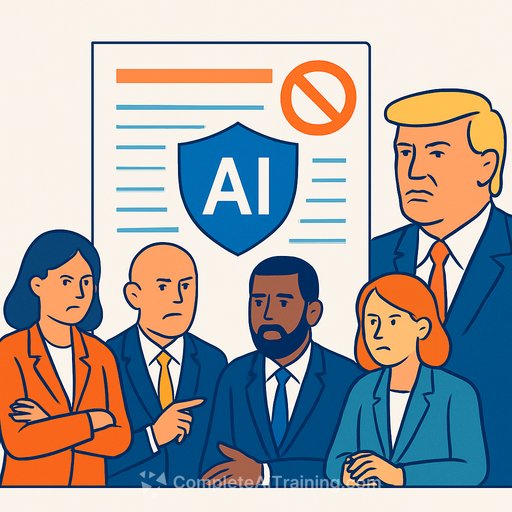In Your Corner: What an AI appeal exposed about denial workflows
When Independence Blue Cross ended coverage of Concerta for Joani Reisen, a Delaware County resident with ADHD, her doctors' first two appeals failed. On a third try, she used an AI tool to generate an 11-page letter with citations for an external review. The denial was ultimately overturned. IBX later said the initial requests lacked a documented ADHD diagnosis, an external physician missed it, and a second reviewer caught the diagnosis and approved the medication.
IBX serves about 3.5 million people in southeastern Pennsylvania. Reisen says generics didn't work for her and caused unwanted effects. The episode highlights how a single documentation gap or reviewer error can cascade into a member losing access to a long-standing therapy-and how AI-driven appeals are becoming part of the picture, whether plans endorse them or not.
Why this matters for insurance leaders
KFF data shows very few denied claims are appealed, yet a significant share are overturned when they are. That gap signals preventable friction, cost, and reputational risk. As AI tools make appeals easier for members and physicians, expect appeal volumes to climb and scrutiny on denial quality to intensify.
- Fewer than 1% of denied claims are appealed; 44% of appealed denials are overturned, per KFF.
- Translation: a material portion of denials are fixable upstream through better documentation capture, policy clarity, and reviewer oversight.
What went wrong in this case
- Diagnosis capture: The plan says the ADHD diagnosis wasn't initially included; one external reviewer missed it on appeal.
- Experimental label: The member reports the drug was classified as "experimental," at odds with widespread use of methylphenidate for ADHD.
- Brand vs. generic: Generics weren't clinically effective for the member. Criteria for "brand medically necessary" exceptions may not have been surfaced or applied early.
- Reviewer QA: A second external physician found the diagnosis and approved coverage. That's a preventable error with better checks.
Action checklist to reduce avoidable denials and appeals
- Require structured fields for key clinical data in prior auth requests (diagnosis, prior trials, adverse effects, contraindications). Block submission if critical fields are empty.
- Add an automated pre-check that flags missing diagnosis codes and prompts prescribers before a denial is issued.
- Publish clear, member-friendly criteria for brand exceptions and step therapy failures; include examples for common classes like stimulants.
- Stand up a "second-look" protocol for denials labeled "experimental" on widely used therapies; force a quick clinical policy match before finalizing.
- Train reviewers on therapeutic nuance (e.g., release mechanisms for stimulants) and set guidance for when generics may not be clinically interchangeable.
- Tighten external reviewer oversight: sampling audits, error tracking, and feedback loops; measure false-denial rates and time to correction.
- Upgrade denial letters: list the missing elements and how to fix them in one step; include a direct path to external review as required by law.
- Track KPIs: appeal rate, overturn rate, reasons for overturn, time to decision, and member effort. Set quarterly targets to cut avoidable denials.
AI is already in your appeals pipeline-plan accordingly
- Members and clinicians will use AI to assemble citations, policy references, and case histories. Expect longer, stronger submissions.
- Use AI internally for quality control: spot missing diagnoses, identify mismatched policy citations, and flag cases likely to overturn.
- Implement model governance: PHI controls, audit logs, reviewer-in-the-loop, and standardized prompts tied to your policies and formularies.
- Measure impact: does AI-assisted QC reduce appeals, speed up approvals, and lower member complaints?
Member experience and trust
People remember loss of access more than seamless refills. A denial that later flips erodes trust even if corrected. The fastest win is preventing the faulty denial with better intake, clearer criteria, and a mandatory second check before "experimental" labels are applied to common therapies.
Key context from this case
- Reisen had years of effective treatment with the brand medication; generics caused issues.
- She used an AI tool, Counterforce Health, to build a research-backed appeal; the insurer maintains AI did not influence the outcome.
- The approval followed identification of the correct diagnosis by a second external reviewer. That points to process, not policy, as the root cause.
Resources
Your membership also unlocks:






